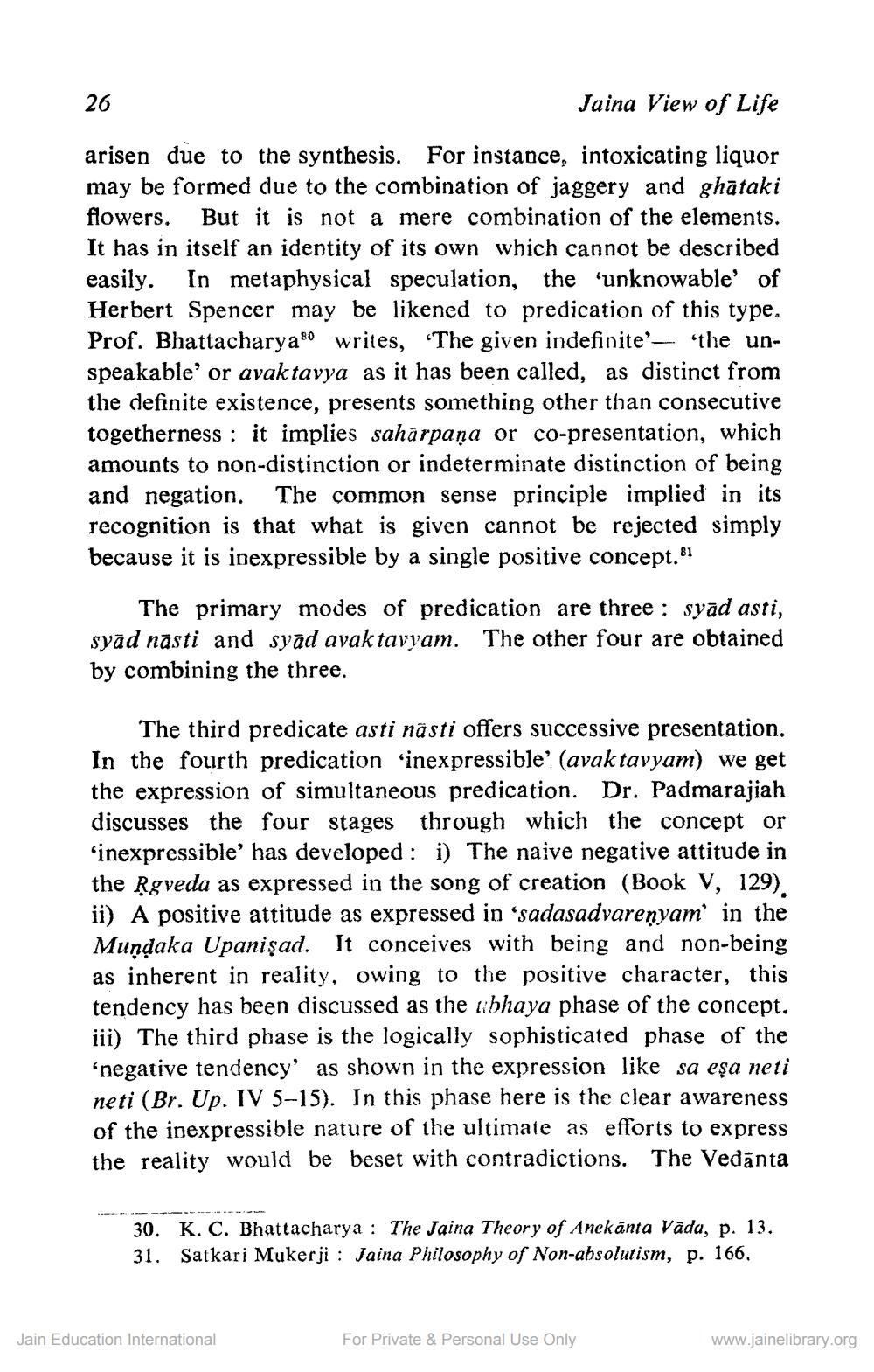________________
26
Jaina View of Life
arisen due to the synthesis. For instance, intoxicating liquor may be formed due to the combination of jaggery and ghataki flowers. But it is not a mere combination of the elements. It has in itself an identity of its own which cannot be described easily. In metaphysical speculation, the “unknowable' of Herbert Spencer may be likened to predication of this type. Prof. Bhattacharya 80 writes, “The given indefinite'- the unspeakable' or avaktavya as it has been called, as distinct from the definite existence, presents something other than consecutive togetherness : it implies sahārpaņa or co-presentation, which amounts to non-distinction or indeterminate distinction of being and negation. The common sense principle implied in its recognition is that what is given cannot be rejected simply because it is inexpressible by a single positive concept. 81
The primary modes of predication are three : syad asti, syād nästi and syad avak tavyam. The other four are obtained by combining the three.
The third predicate asti nästi offers successive presentation. In the fourth predication 'inexpressible? (avak tavyam) we get the expression of simultaneous predication. Dr. Padmarajiah discusses the four stages through which the concept or 'inexpressible' has developed : i) The naive negative attitude in the Ķgveda as expressed in the song of creation (Book V, 129). ii) A positive attitude as expressed in ‘sadasadvarenyam' in the Mundaka Upanişad. It conceives with being and non-being as inherent in reality, owing to the positive character, this tendency has been discussed as the ribhaya phase of the concept. iii) The third phase is the logically sophisticated phase of the 'negative tendency' as shown in the expression like sa eșa neti neti (Br. Up. IV 5-15). In this phase here is the clear awareness of the inexpressible nature of the ultimate as efforts to express the reality would be beset with contradictions. The Vedānta
30. K. C. Bhattacharya : The Jaina Theory of Anekānta Vāda, p. 13. 31. Satkari Mukerji : Jaina Philosophy of Non-absolutism, p. 166.
Jain Education International
For Private & Personal Use Only
www.jainelibrary.org




